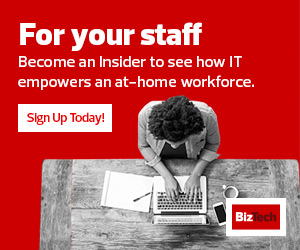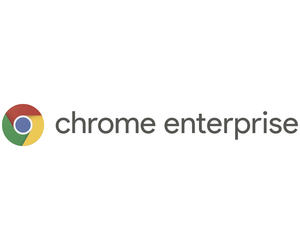Supporting a Distributed Workforce with Chrome Enterprise
Businesses have no choice but to adapt in times like these, but that doesn’t make the work of adopting the necessary tools any easier for IT teams. It can be complicated to implement IT solutions at enterprise scale, and especially now, when many workers are remote, there is an added layer of complexity. Chrome Enterprise is an endpoint solution that can help address these challenges.
The first hurdle in deploying any new endpoint IT solution is getting devices into the hands of employees. Chrome OS devices deploy 76 percent faster than Windows 10 devices (according to a Google-commissioned study by ESG), thanks to a simple enrollment process and eliminating the need to image new devices. Additionally, devices that are purchased with the enterprise capabilities unlocked, courtesy of Chrome Enterprise Upgrade, are automatically enrolled in a centralized Google Admin console, allowing IT to manage its entire fleet of Chrome OS devices from a single app. This includes pushing OS updates, applying new security policies, or remotely wiping lost or stolen devices — all of which ensures devices and data stay secure.
Getting devices to employees and keeping them secure are two important aspects of any device transition. Equally important is ensuring that workers can access the apps and tools they need to stay productive from anywhere. Chrome Enterprise helps workers stay connected by providing them access to all the apps they need via a combination of cloud-based web apps and legacy apps — the latter of which can be accessed via VDI solutions or the recently announced Parallels Desktop for Chromebook Enterprise. With Parallels Desktop, workers can access Windows apps even while they are offline, thanks to apps running locally on the device.
Thanks to the ease and efficiency of deploying devices and managing them remotely, plus reduced employee downtime, IT can significantly reduce the total cost of ownership of its endpoints. These efficiency gains for both IT and employees result in annual savings of $482 per device, making Chrome Enterprise a smart investment for any distributed workforce.
MORE FROM BIZTECH: EMM, MDM and DaaS: What's the difference, and which is right for enterprises?
New Solutions Coming to Chrome Enterprise
Chrome OS — the operating system at the core of the Chrome Enterprise platform — has evolved in meaningful ways to address the challenges of supporting a distributed workforce. Just as businesses have been forced to adapt to unprecedented change, Chrome OS is continually improving to provide IT admins the tools their businesses require.
Getting devices into the hands of workers has always posed a logistical challenge; now more than ever, with employees being distributed. To help simplify the deployment process for Chrome OS devices, Google has recently announced the availability of zero-touch enrollment. This new feature enables organizations to drop-ship devices directly to employees, ready for login out of the box, making deployments significantly easier for IT admins while getting employees up and running quickly.
As much of the software and tools knowledge workers use on a daily basis moves to the cloud, Chrome OS provides the ideal endpoint solution for cloud-based work. For workers who still rely on Windows apps on a regular basis, however, Parallels Desktop for Chromebook Enterprise provides the best of both worlds. With a local instance of Windows running on Chrome OS, workers can access all the apps they need, including Microsoft Office, locally on the device. Parallels Desktop provides IT the benefits of a remote managed fleet of endpoints, while ensuring workers can run the apps they need to stay productive from anywhere.
A common challenge facing IT departments is finding the right solutions to work within your environment. For organizations transitioning to Chrome OS, Google has announced the Chrome Enterprise Recommended program, which offers an ecosystem of recommended third-party software partners that have been tested for compatibility and an enhanced end-user experience.
“Deploying devices to workers and providing secure access to legacy apps have become ongoing challenges as organizations have transitioned to being distributed. With the launch of zero-touch enrollment and Parallels Desktop for Chromebook Enterprise, CDW is proud to be offering these new solutions to customers to help alleviate significant pain points for IT professionals,” says Ben Hodges, senior manager, product and partner management with CDW.
Is Your Businesses Is Ready for the Switch?
The rapid transition to remote work in 2020 has created complex environments for IT as administrators are tasked with managing more devices, solutions and tools than ever before. Chrome Enterprise’s comprehensive endpoint solution can ease those burdens and allow IT to focus on the organization’s future. Want to learn more about all the exciting new features recently announced for Chrome OS to support your distributed workforce? Join Google for Chrome OS Demo Day on Dec. 3 — register today!
Brought to you by:













